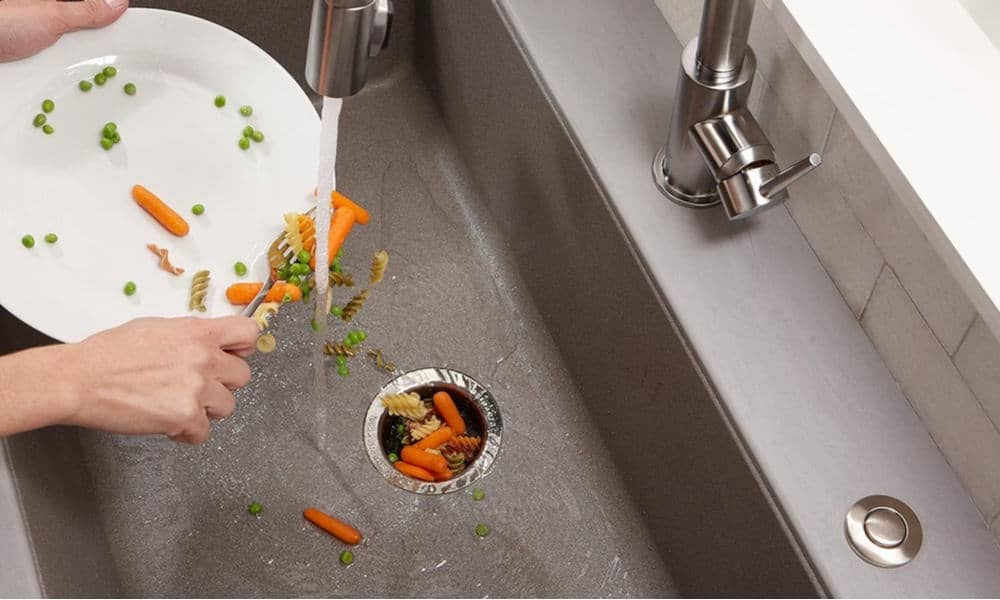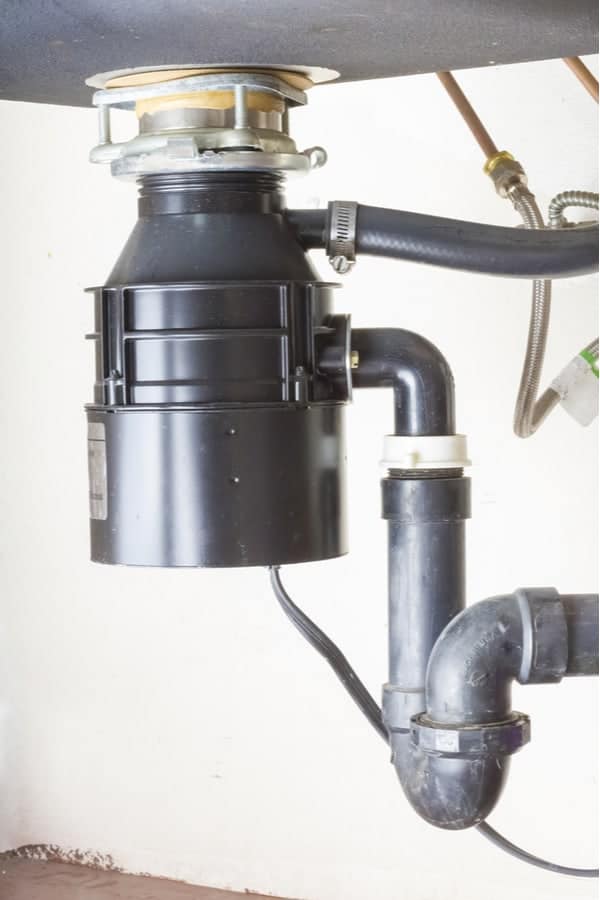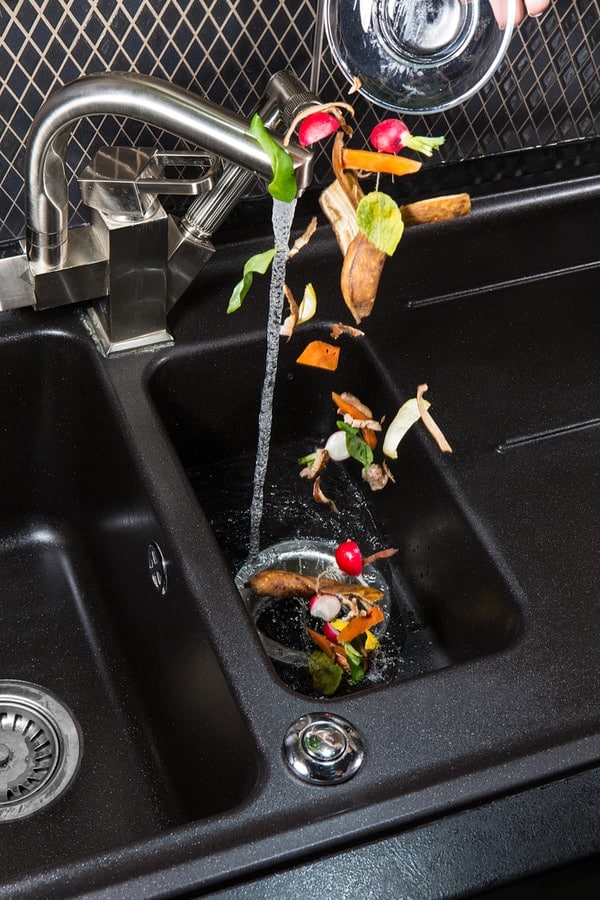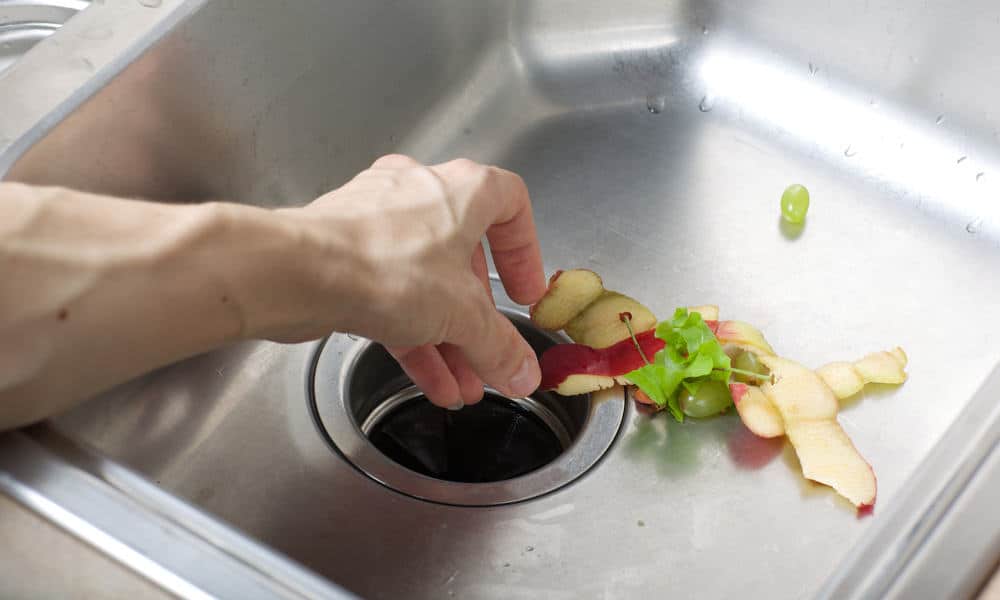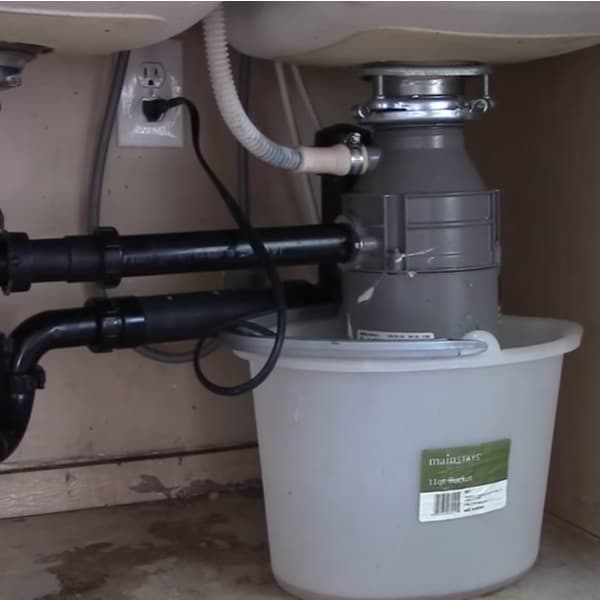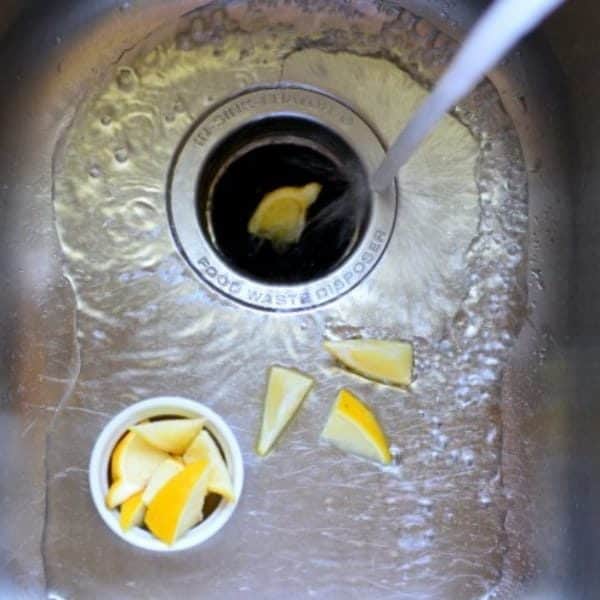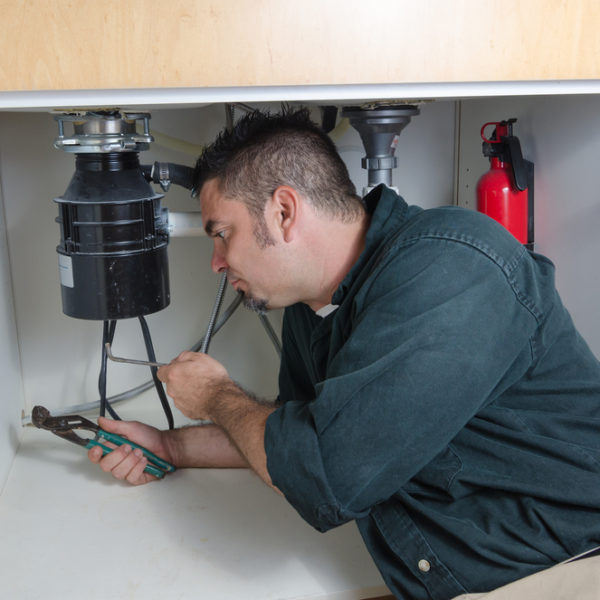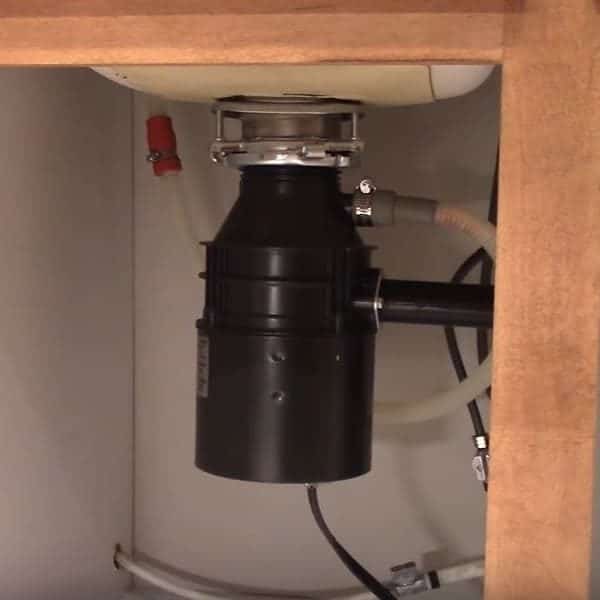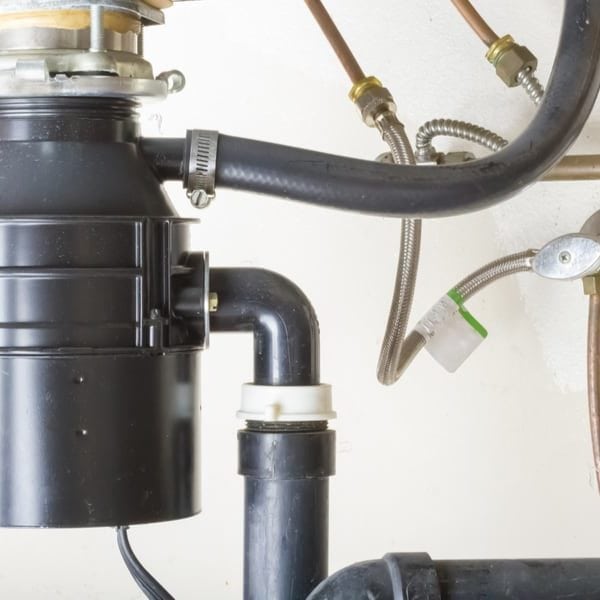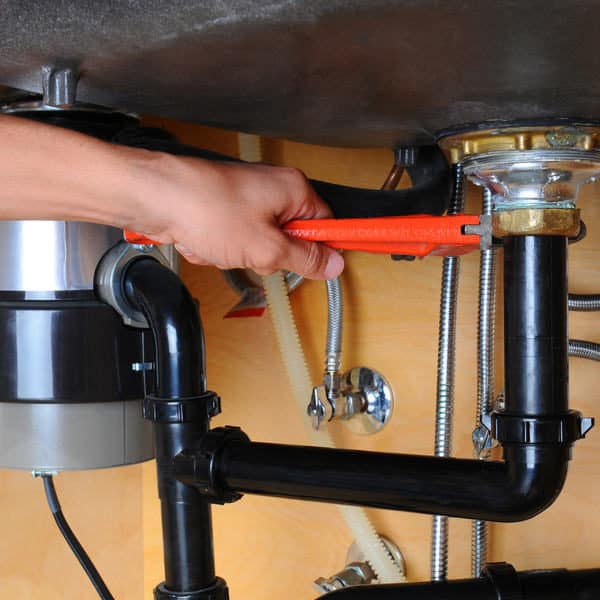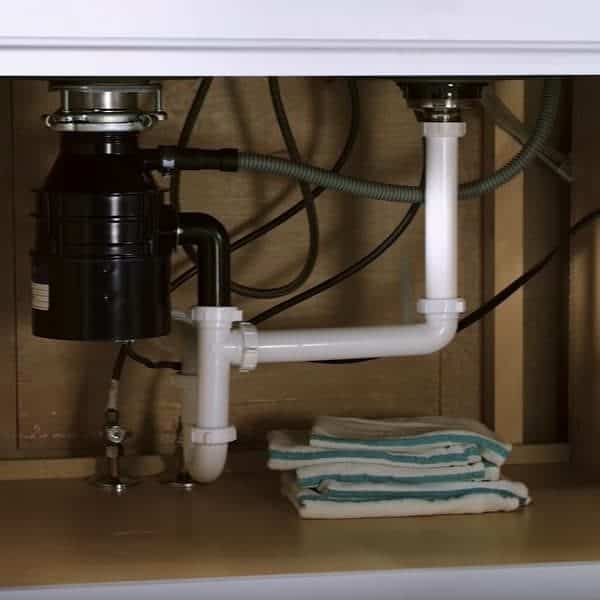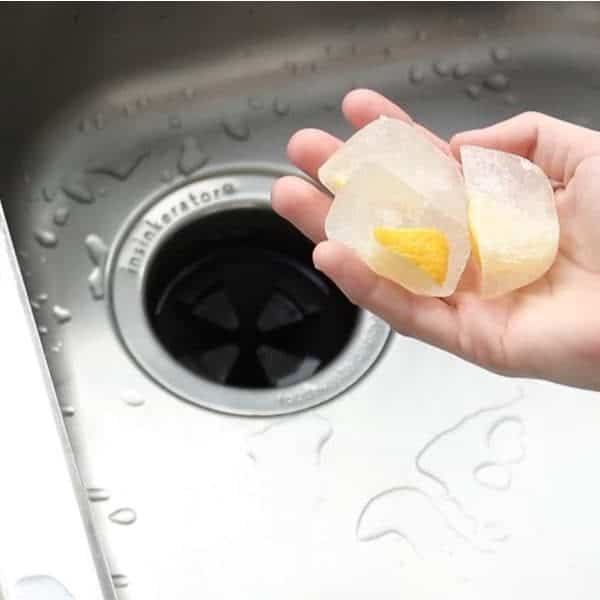Garbage disposal is an electric grinding device placed the underside of the drainage hole in the sink. Its sharp blades shred food waste you put inside into tiny pieces. In the US, you can find two types of this unit, including batch-feed garbage disposal and continuous-feed garbage disposal.
No matter which one you have in your kitchen, you should know that there are some primary rules you need to follow while using it to avoid clogging and bad odors. Let’s see how to use your garbage disposal without the appearance of these problems.
How to Use Garbage Disposal
1. Run your garbage disposal regularly
Surprisingly, the garbage disposal is one of these devices that will last longer if you use them more. If you make too much pause between its usage, you will allow old food waste hardens in the system.
Consequently, grease will coat the walls of the device and cause clogging over time. Plus, if you don’t use your appliance regularly, you will face the occurrence of corrosion and rust. That will lead to quick damaging.
Even though you don’t have waste to cut for a few days, you should run the cold water through the system. That way, you will keep the drains clean and prepare for future usage.
2. Run garbage disposal longer
Never turn off your garbage disposal as soon as you grind the waste. Always let the water run for at least a minute after the last piece of food goes down. Grinding up to a blank will ensure removing all, even tiniest scraps of food and flushing out the pipes.
That will keep your system safe from clogging. One more benefit is that the cold water prevents overheating of the shredder blades and bearings.
Also, it will be practical to run the solution of dish soap and cold water down the drain from time to time. It will keep your pipes clean and prevent clinging remains to the walls.
3. Keep your garbage disposal clean
Always keep in mind that just clean garbage disposal can work efficiently for an extended period. The reason is that food waste coats the blades and cause their damage. Consequently, your device will stop working during the time.
The type of food waste you usually throw into your device matters, as well. For instance, if you use a lot of greases, they will harden in the drains, stick to the walls, and block the blades.
Regular maintenance, running the device for a while after every use, and flushing with cold water will help to dislodge even tiny pieces of debris. Adding some dish soap, vinegar, or citrus peels occasionally will keep your drains clean and fresh, which will prolong their time of use.
4. Run cold water down your garbage disposal
I can’t emphasize enough the importance of using cold water in maintaining your garbage disposal. Why cold? It is a matter of chemistry. If you add hot water into drains, food waste will melt, and grease will turn to liquid and flow down the pipe walls.
Once you turn off your device, the residue of these fats will harden and buildup inside your appliance. Over time, it will have difficulties with working and cease to function eventually.
On the other hand, when you let cold water flow through the system, grease will soak and soften. So, water will wash it away along with the other dirt. Additionally, regular pouring cold water will flush the entire drainage system and allow its smooth functioning.
Even in the case when you have a problem with clogging, avoid using warm water. It is better to dissolve dish soap in cold water and pour it into drains. In most cases, this is all you will need to clean the pipes.
5. The benefits of ground ice cubes
My favorite solution is filling my garbage disposal with a mix of a few ice cubes and rock salt once a month. After running the device for a minute, all the dirt and grease deposits from the blades, walls, and chamber will harden and fall off.
Ice crushed into smaller pieces will clean even the hardest to reach areas of your device. If any dirt remains stuck to the pipe walls, you can easily scrape them off with an old toothbrush.
In the end, you can pour white vinegar and baking soda into the drains to kill bacteria and get rid of awful smells.
6. Grind citrus peels in your garbage disposal occasionally
Except for regular flushing with water, it is an excellent idea to grind some lemon, orange, lime, or grapefruit peels in your garbage disposal. It will keep your system clean and prevent the occurrence of awful smells from drains at the same time.
7. Cut substantial debris into smaller pieces
A rule of thumb is to avoid forcing larger pieces of food waste into your garbage disposal. Even though your unit has sharp blades and powerful motor, it won’t work well in the long run if you throw large items into the hole.
Unfortunately, every garbage disposal, no matter how high quality it is, has limits. If you pay attention, you will hear the struggling of the blades if you put something inappropriate inside the device.
Cutting large pieces of food waste into small chunks, breaking them up before grinding, and putting them separately into the disposal will help your device stay in excellent condition. If you follow this primary advice, you can expect your unit works for years without severe issues.
8. Take care what to put into your garbage disposal
Take care not to put anything except waste food down your garbage disposal. You should read the manual before starting using it. Be aware that the design of this type of device is not intended for cutting glass, wood, metal, or plastic.
Never use this device as a trash can if you want it to last for a long time. Also, you should avoid grinding ingredients, which will clog your drains over time, such as:
- Large animal bones – Throwing small bones into the system is often useful and prolongs the life of your garbage disposal. On the other hand, large bones are too sturdy and may break the blades and clog the drains.
- Eggshells – They are often beneficial for keeping the pipes clean since they scrub residual dirt. However, this is only true when you put dried eggshells into the garbage disposal. If they contain traces of yolks, you can expect them to stick to the pipe walls and clog drains eventually.
- Seafood shells and un-popped popcorn – If it is possible, never throw lobster and crab shells and un-popped popcorn into your garbage disposal. They are too hard and may dull and damage the blades.
- Seeds and pits – Due to their size and hardness, they often stick in the pipes, dull the blades, and can clog drains. Consequently, it will prevent the passage of other food, which will lead to its accumulation and rot.
- Potato peels – The starch from potatoes will break down into a thick paste, which will coat the walls and blades of your device. If you don’t have a compost pile, you can throw a small amount of this waste into the system from time to time. However, be careful and do it sparingly.
- Rice and spaghetti – As expandable food, both pasta and rice will increase in volume once they contact the water. If there is a more significant amount of it, you can expect it gets stuck to the system walls and causes clogging over time.
- Fibrous food – You should avoid throwing leftovers of groceries such as celery stalks, onion skins, artichokes, corn husks, and banana peels into your garbage disposal. In most cases, they get tangled around the blades. As a result of this, you can expect that the motor of your unit burns out.
- Coffee grounds – Putting coffee grounds into your device will improve smells coming from the inside, but you should avoid doing that too often. This stuff is like a paste, and it quickly blocks drains. To make matters worse, it is difficult removing it from the inside of your device.
9. Avoid pouring drain cleaners in your garbage disposal
Since drain cleaners contain chemicals that can damage your device, it is better to avoid using them when it comes to cleaning. There are a lot of eco-friendly and harmless cleaners, such as white vinegar, baking soda, and ice, for example, which you can use instead.
10. Never use bleach to unclog your garbage disposal
There is a high possibility that the caustic chemical splashes up and harms you once you turn the appliance on to clean it.
Conclusion
Garbage disposal is an excellent and convenient device for removing biodegradable food waste. The rule of thumb is that an expensive unit is more robust and has a higher capacity to cut different types of food waste.
That means you should pick out the garbage disposal according to its technical capabilities and the needs of your household. Also, you should always try to handle it as instructed by the manufacturer. It is the best way to extend the life of your device.
